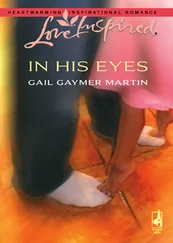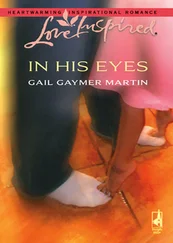Everyone had been surprised at the news they were to be married. Especially Irene.
‘You’ve only known him for five months,’ her sister had said, gravely, as if she thought Paul might be a spy or a bank robber. ‘Why don’t you wait until you know him better?’
She hadn’t waited though, had jumped straight in. Had their marriage been a mistake? Paul hadn’t wanted to have children nearly as much as she had. Being a father often seemed more of a burden than a delight. And his moods hadn’t got any better over the years.
He’d come home from work, scowling, and scurry to his armchair to watch TV, or into his office to sit at his computer. She’d be taken to task for leaving creases in his shirt, or one of any number of things he might find fault with. Every now and then he’d say horrible things to her; afterwards he’d tell her he was sorry, he hadn’t meant it. His words would burrow under her skin though. She imagined them slowly dissolving her, like acid eating into metal. She was too soft, that was the trouble. Yet, after a big sale, or some good news at work, he’d be bursting with boyish enthusiasm, and he’d become the affectionate, undaunted man she used to know. The man who gently teased her, who would come up to her in the kitchen and give her a hug. ‘You’re my woman, Suze,’ he’d say. ‘I love you.’
An ache lodged in her throat. Why was he like this? Whenever she tried to comfort him, or offer support, he would pull away, shutting her out. Something seemed to be gnawing away at him, something he couldn’t share with her.
An image of the girl at the party came into her mind – she could see again the whiteness of her arms, and her animated, unlined face. And Paul, clinging to her arm, unable to take his eyes off her.
She dabbed the duster clumsily at the photograph. It fell over with a clatter. She set it right, gritted her teeth, and fiercely buffed the sideboard until a grainy reflection of her face appeared in the oak. From the corner of her eye, she saw something dark move away from the sofa. A spider, bulbous and hairy, the size of a plum, heading straight for her. She flung the duster at it but missed by a foot. She grabbed the thick Collins dictionary on the coffee table, waited for the thing to reach her, and walloped down the book. Pressing her foot down on the book, she imagined the mangled body beneath. The horror of it prickled in her scalp.
Suzanne made a cup of strong tea and took it onto the patio. She loved this garden. A path cut through the lawn, leading to a cluster of fruit trees and a vegetable plot. Rhododendrons blazed purple in spring and later there were blood-red roses. The trees and shrubs were bare now though, except for a single yellow leaf clinging from a twig, flapping furiously in every movement of air.
She closed her eyes and tried to concentrate on each breath. Mindfulness, they called it at the meditation group. It was a good way to let go of stress, everyone said, only she hadn’t quite got the hang of it yet. Thinking about her breathing tended to make her feel less relaxed. Besides, household tasks she had forgotten to do and all manner of things always intervened – and cats.
‘Eeeeaaaow.’
Marmaduke pushed his body against her leg. She stroked him then got up and walked to the other side of the garden. At the rockery, patches of weeds filled the gaps where stones had fallen. The pond was covered with dead leaves. There had been goldfish, once. She stared into the murky depths. What was the matter with her today? Perhaps it was just this time of year.
No, it wasn’t that. It was Paul.
He’d changed. When they first met he’d been affectionate, attentive, adoring. But now… It was hard to pinpoint exactly when it had started. There were countless little things, each with its own rhythm. Some seemed to ebb and flow like the phases of the moon, others seemed to change imperceptibly, like yellowing paper.
His kisses, for one. Instead of a kiss on the lips when he came in, he’d go past her to get a beer from the fridge. He’d come home tired and withdrawn, not wanting to talk to or touch her. They only kissed when they were making up, or during sex. That too had changed. These days it was more like an over-familiar ritual than an expression of love, let alone desire.
Could he be seeing another woman? He had always denied it. He said he was tired out from work, and he had no interest in anyone else. He would only ever love her.
A brown leaf jiggled in the pond. Suzanne stepped closer. She could make out dark shapes among the reeds that didn’t look like fish. She rubbed her arms.
No, she’d know if there was another woman. She was in a gloomy mood, that was all. Maybe things were getting better. This new interest in swimming coaching – perhaps it was a good sign. Paul needed something to take his mind off work. She’d said enough times that it was taking over his life.
Suzanne turned away from the pond and walked towards the house.
No one had a perfect relationship, did they? No marriage stayed the same for twenty-five years. They’d both changed. Before they were married, Paul said he loved her for being feminine – unlike other women who needed to prove how tough and clever they were. And hadn’t she been drawn to his ambition, his confidence, his unrelenting alpha-maleness?
Only she wasn’t a young woman any longer. Now, instead of giving in, she would stand up to him when they argued. She had joined a meditation group, in addition to her yoga class, despite him telling her she was taking on too much, and she’d stopped cleaning the house twice a week just because he liked it spotless.
Did he prefer her as she used to be? He’d never said it. But so many things were locked away inside him, unknowable.
Shortly after 7pm, Suzanne took out the rack of clean cutlery from the dishwasher. Paul shouldn’t be much longer, she thought for the third or fourth time. He hadn’t said he would be late. She put the final fork away, closed the drawer and went into the living room, giving a wide berth to the dictionary still on the floor. She switched on the television and flicked through the channels. Soaps, a documentary about welfare cheats, another on the mating habits of foxes. She switched it off, moving quickly away from the mirror above the mantelpiece. She didn’t need to be reminded of the crows’ feet gathering at her eyes, or her eyelids that were beginning to droop.
It came to her, then. Something had been trying to come into her mind since Katherine’s party. That day, years ago. She’d yelled ‘dinner’s ready!’ several times, but neither Paul nor Laura had answered. Flustered, she’d opened the living room door to find Paul sitting on the sofa, reading an Edward Lear poem to Laura, sitting beside him. Both completely absorbed – neither looking up as she entered the room – just as Paul and that girl had been at the party. Afterwards she’d scolded herself for her sudden jealousy, told herself this was wrong, she shouldn’t be jealous of her own daughter.
There’d been other times too, when she’d felt excluded and even a little envious. Paul would be so eager to leave the house to pick up his daughter from her ballet class or swimming lesson, or he’d be so focussed on helping her with her homework he’d scarcely notice anything else. And that sailing holiday, the summer after Laura had turned thirteen. How many times had she noticed Paul watching her with that mournful expression? He regretted, she’d imagined, that his daughter was no longer the little girl who wanted him to read poems to her, but was on her way to becoming an adult. He hadn’t confided in her, his wife, though. She’d been an intruder into his private grief.
The minute hand of the mantelpiece clock jerked forward, another step on its long journey towards the hour.
Читать дальше












